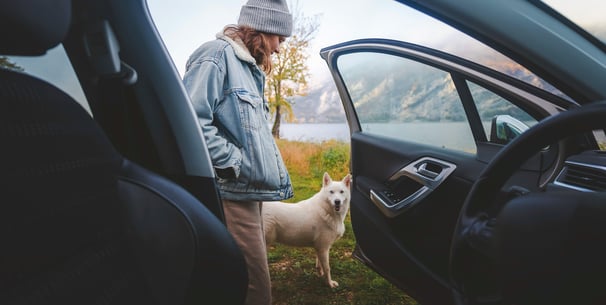Index:



Introduction
Walk through any urban park on a Sunday morning and you’re guaranteed to see them: people pushing prams, talking in baby voices, comparing food intolerances, and scheduling sitting duties - all for their dogs. In cities across the globe, the “fur baby” has become more than just a meme. It’s a cultural shift, reflecting new ways of living, loving, and finding purpose in a world that looks very different from the one our parents imagined for us.
So, are pets the new children?
It’s easy to laugh off the idea, I get it. After all, pets don’t go to school, throw tantrums or ask about the meaning of life at bedtime. But the growing emotional, financial, and social role of animals in our lives tells a more complex story - one about family, freedom, identity, and care in an evolving society.



The rise of the fur baby
Pets have long been a part of our homes, but in recent decades, their roles have undergone significant changes. Where dogs were once seen as workers - herding sheep and guarding homes, for example - they’re now much more likely to be seen wearing a raincoat, eating a grain-free diet, or sitting in a dedicated car seat. In the UK, pet owners now spend an average of £1,340 a year on their dogs, with the pet industry booming globally.
Social media has only accelerated this trend. Pets have Instagram accounts, owners go to “puppy yoga,” and attend birthday parties complete with dog-friendly cakes and drinks. Terms like “dog mum,” “cat dad,” and “fur baby” have entered everyday language, and services like pet insurance, behavioural therapy, and dog-friendly holidays are increasingly seen as essentials, not luxuries.



Why pets - and why now?
There are many reasons people are choosing pets over children, or at least finding that pets meet many of the same emotional needs. For millennials and Gen Z, pets often fit more seamlessly into a life shaped by economic instability, climate anxiety, and shifting definitions of adulthood.
Raising children is more expensive than ever. According to the Child Poverty Action Group, it costs over £250,000 to raise a child to 18 in the UK. By contrast, while pet costs are rising, they’re still significantly lower, and the lifestyle flexibility they afford is a major draw for people who value travel, career freedom, or simply don’t have the support systems to raise children.
There’s also the emotional side. In an increasingly disconnected world, pets provide a reliable source of companionship, routine, and unconditional love. They don’t judge, they’re always happy to see you, and they give you a reason to get out of bed - or out for a walk - on the hardest days.



Pets and chosen family
The trend takes on deeper meaning within LGBTQ+ communities, where traditional paths to family and parenthood have often been less accessible or less safe. For many LGBTQ+ people, especially those who may be estranged from biological relatives, the idea of “chosen family” - a network of friends, partners, and loved ones we actively choose and nurture - is a vital concept.
Pets often become central members of these chosen families. They offer emotional grounding, a sense of home, and daily care rituals that mirror parenting in many ways. In LGBTQ+ households, pets can also symbolise stability and love in a world that hasn’t always made room for those expressions.
As a queer dog owner myself, I don’t know if I’ll ever have kids. But my dog gives me something to care for, I’m responsible for him, and he depends on me. He’s not a substitute for a child; he’s a part of the life I’ve built. I feel confident and satisfied in my decision and happy in my chosen family in this specific chapter of my life. I don’t aspire to traditional notions of success, such as marriage or children, and it feels utterly freeing.
In this way, I believe pets don’t necessarily replace children - they become a part of the larger, more inclusive understanding of what family looks like today. I also find it empowering to question the definition of family and to stray away from the nuclear image generations before us aspired to.
Rewriting parenthood
In many ways, the care we give pets mirrors how we once viewed raising children: time, money, love, anxiety, even social status. Pet owners now face questions about schooling (training), diets (raw or dry?), and medical care (insurance or self-funded?). There are debates over crate training versus positive reinforcement, much like discussions about sleep training in babies.
There’s also an increasing sense of identity in being a “pet parent.” People aren’t just dog owners - they’re “mums” and “dads,” complete with social media bios to match. For some, it’s tongue-in-cheek. For others, it’s a genuine reflection of how they relate to their animals and how those animals reflect their values and priorities.



But are pets really children?
Despite the strong emotional connections, pets are obviously not children. They don’t grow up to have their own aspirations, careers, or families in the same way that humans do. They don’t ask difficult moral questions or challenge your values in the same way a child might. And while their loss is devastating to us, the relationship is biologically and socially very different.
There’s also a concern about over-anthropomorphising pets - assigning them human emotions and expectations they may not experience. Are we truly responding to their needs, or projecting our own unmet ones onto them? A Pug in a Halloween costume might be cute, but does it serve the dog or rather the owner’s Instagram aesthetic?
Animal welfare experts often emphasise the importance of respecting a pet’s species-specific needs and limitations while acknowledging the powerful bonds that can form between humans and animals.
In an article exploring ‘dog guilt’ in The Independent, clinical animal behaviourist and trainer at Chelsea Canines, Dr Nicky Shaw writes, “Dogs have remarkable skills and traits bred over thousands of years, and these should be encouraged by owners providing appropriate outlets for them.” - something I wholeheartedly agree with.
This over-anthropomorphisation thus leads to pet parents being taken advantage of within the pet market. You don’t have to look far to find Instagram stores selling matching dog accessories, cafes with dog-friendly ice cream, coffee shops offering puppaccinos, and dog groomers promoting additional extras on top of grooming services, such as blueberry facials and pedicures. At what point is it all just a bit much? I suppose this is a matter of personal preference, but again, it is an essential first step to realise that, no, dogs are not children or replacements for such.



Companions in a changing world
Still, the rise of pet parenthood is less about confusing pets with children, and more about adapting to a world where the old expectations of adulthood—marriage, mortgage, 2.4 kids—no longer fit everyone’s needs, realities, or desires. And anyway, what even is a 0.4th of a child?
In that world, pets offer companionship, purpose, and a form of intimacy that can be just as valid as traditional family structures. Whether you're a single professional, a queer couple building a life together, or someone healing from family trauma, pets provide a type of care that’s deeply emotional, even if it’s not the same as raising a child.
And in some ways, pets make us more human, not less. They encourage empathy, responsibility, and presence. They teach us to love consistently and say goodbye gracefully. They don’t replace children, but they remind us that love doesn’t have to follow a traditional blueprint.



The future of pet parenthood
So, whilst pets may not exactly be the ‘new children’, they’re certainly becoming a new kind of family. As society continues to redefine what it means to live a meaningful life, animals are taking up a central role in the way we give and receive care, and this is something that I and those around me are perfectly okay with.
This isn’t just a quirky millennial trend; it’s a reflection of broader shifts in identity, economics, and the very shape of human relationships. Pets may not be our children, but they are our companions, confidants, and, for many, the heart of our homes.
And perhaps the better question isn’t “Are pets the new children?” but “What does it say about us, and our world, that we’re asking that question at all?”
Waggel Pet Insurance
Need more help? You're in luck if you're a Waggel Pet Insurance member. Along with our excellent coverage, we offer access to a 24/7 online vet to answer all your sticky questions, especially if you need grooming assistance.
Not a member? Why not get a quote now and cover your furry friend for a range of illnesses, all while enjoying our amazing perks and rewards.
Want more like this?
Get updates from us with helpful info, advice, answers to frequently asked questions and much more.
Index:
Related posts:
Get your quote
Along with our excellent coverage, we offer access to a 24/7 online vet to answer all your sticky questions.





